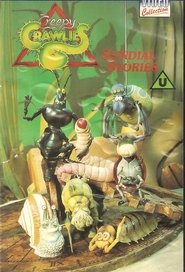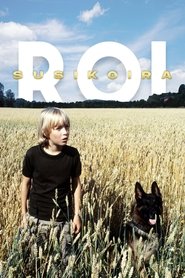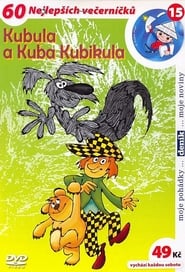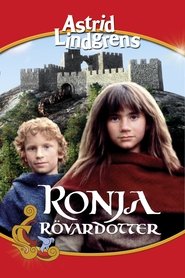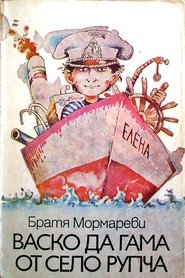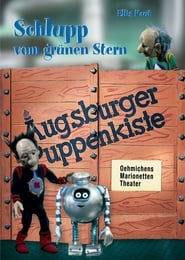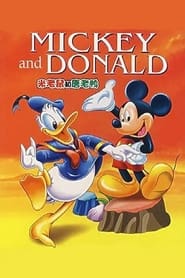New Kids TV Series on Pantaflix - Page 297
-
Creepy Crawlies
1987
Creepy Crawlies
1987
star 7Creepy Crawlies was a stop motion animation series created by Cosgrove Hall. The series consisted of 52 ten-minute episodes, which were broadcast on Children's ITV between 1987 and 1989. All episodes were written by Peter Reeves and directed by Franc Vose and Brian Little; narration and character voices were provided by Paul Nicholas. The series was based upon the daily goings-on of a group of common invertebrate creatures that lived at the bottom of a garden around an old sundial. And so another bright new day dawns upon the home of the Creepy Crawlies, Mr Harrison the snooty snail, Suppose the lowly red-nosed worm, Ariadne the spider, the irksome woodlouse-come-pill-bug called Anorak, meek Ladybird, Lambeth the brawny-but-brainless beetle and Ancient the aged caterpillar dwell right down at the bottom of the garden, near the shed, on and around an old broken sundial. Classic Cosgrove Hall stop-motion animation. -
Bassie en Adriaan: Het geheim van de schatkaart
1987
Bassie finds a treasure map in a painting he bought at a flea market. Three crooks are also after the treasure and try to take the map from our friends. -
Susikoira Roi
1987
Susikoira Roi
1987
star 7.5The story of Tomi, a schoolboy who finds a dog tied up in the forest and stoned by boys. Tom and the dog become friends immediately, but not all the residents of the town agree with Tom about the value of the stray dog, and the boy is forced to go into hiding with his new furry friend. Tom also has to work hard to convince his family at home to let him keep the dog. -
The Little Bear
1987
The Little Bear
1987
The Little Bear (a.k.a. Clever Raccoon Dog) is a North Korean and Italian animated television series produced by SEK Studio which aired on North Korean state television and also distributed by Mondo TV on international broadcasts and Mokran Video on North Korean video releases. -
动物王国窃案
1987
-
Strom pohádek
1987
Strom pohádek
1987
-
Dirty King Adventure
1987
Dirty King Adventure
1987
star 8.1There is a little boy nicknamed King Dirt, he is particularly sloppy and not hygienic, believe in "something which is not clean is safe to eat". One day, the Mouse King wanted to conquer mankind and dominate the world, so he wanted to find someone to test his bacterial weapon. And they trapped and tricked the little boy to the rat kingdom. In the rat kingdom, the King Dirt boy found himself jailed. He really regretted and wanted to go home, can he finally make it? -
Living Scriptures Animated Stories
1987
Animated shows of Mormon faith scriptures & heroes. Children's visuals of uplifting representations of some of the more popular and favorite scriptures. -
Edward and Friends
1987
Edward and Friends
1987
Edward and Friends was a children's TV series in clay animation from FilmFair that aired on British and Canadian television in 1987. The series was 5-minute stop-motion shorts based on the LEGO's "Fabuland" line of toys that lasted 10 years from 1979 to 1989. Edward was the main character in the show and the episodes were centered around him and his two friends Bonnie and Max. The series was set in the fictional town of Fabuland. It was Lego's first foray into animation and television in general. Bernard Cribbins provided the voice-over for the show. Written by Michael Cole with music by Mike Batt. A FilmFair London Production. -
Ronja Rövardotter
1986
-
龙珠剧场版
1986
龙珠剧场版
1986
-
Alfons Zitterbacke
1986
Alfons Zitterbacke
1986
Alfons is very unlucky boy. Even when he intends well everything is going wrong, so his life is full of various mishaps. -
Calabash Brothers
1986
Calabash Brothers
1986
star 8.6Calabash Brothers is a Chinese animation TV series produced by Shanghai Animation Film Studio. It is also referred to as Bottle Gourd Brothers, Hulu Brothers, Seven Brothers and Pumpkin Brothers. In China, the series is popularly known as Huluwa. -
Augsburger Puppenkiste - Schlupp vom grünen Stern
1986
Schlupp vom grünen Stern is a German television series. -
Leó és Fred
1986
-
Henry's Leg
1986
Henry's Leg
1986
Series based on Ann Pilling's children's novel. Henry brings home an innocent looking leg from a fashion dummy to add to his junk collection. A gang of thugs is very interested in the leg and seems to be prepared to stop at nothing to get it back. -
Mock & Sweet
1986
Mock & Sweet
1986
Mock & Sweet is a Japanese anime series. Mock and his sister, Sweet, are curious about the fuss on the earth and eventually decide to come out of the ground. They save the poor, the innocent and the brave whenever and wherever these people need help. Mock and Sweet get rid of tyrants, evil kings and notorious emperors, with smart and funny tricks a la Mole! The story background follows major historic events.
 Netflix
Netflix
 Amazon Prime Video
Amazon Prime Video
 Apple iTunes
Apple iTunes
 Apple TV Plus
Apple TV Plus
 Disney Plus
Disney Plus
 Google Play Movies
Google Play Movies
 Paramount Plus
Paramount Plus
 Hulu
Hulu
 HBO Max
HBO Max
 YouTube
YouTube
 fuboTV
fuboTV
 Peacock
Peacock
 Peacock Premium
Peacock Premium
 Amazon Video
Amazon Video
 The Roku Channel
The Roku Channel
 AMC+
AMC+
 Kocowa
Kocowa
 Hoopla
Hoopla
 The CW
The CW
 Vudu
Vudu
 Starz
Starz
 Showtime
Showtime
 PBS
PBS
 Pantaflix
Pantaflix
 FXNow
FXNow
 Tubi TV
Tubi TV
 Kanopy
Kanopy
 Comedy Central
Comedy Central
 Crunchyroll
Crunchyroll
 Microsoft Store
Microsoft Store
 Redbox
Redbox
 Sun Nxt
Sun Nxt
 ABC
ABC
 DIRECTV
DIRECTV
 Crackle
Crackle
 Fandor
Fandor
 Plex
Plex
